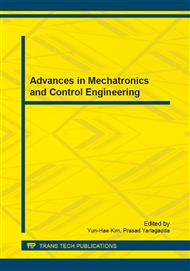p.1265
p.1271
p.1275
p.1282
p.1287
p.1292
p.1297
p.1301
p.1305
A Fuzzy Algorithm of Customers Evaluation Based on Attributes Reduction
Abstract:
A fuzzy algorithm of customers evaluation based on attributes reduction is presented. The evaluation from the data objects based on key attributes can reduce the data size and algorithm complexity. After Clustering analysis of customers, then the evaluation analysis will process to the clustering data. There are a lot of uncertain data of customer cluster, so the traditional method of classification and evaluation to the incomplete data is very difficult. Superposition evaluation algorithm based on fuzzy set can improve the reliability and accuracy of e-commerce customer evaluation. Evaluation of the e-commerce customer also can improve efficiency, service quality and profitability of e-commerce businesses.
Info:
Periodical:
Pages:
1287-1291
Citation:
Online since:
January 2013
Authors:
Price:
Сopyright:
© 2013 Trans Tech Publications Ltd. All Rights Reserved
Share:
Citation:


